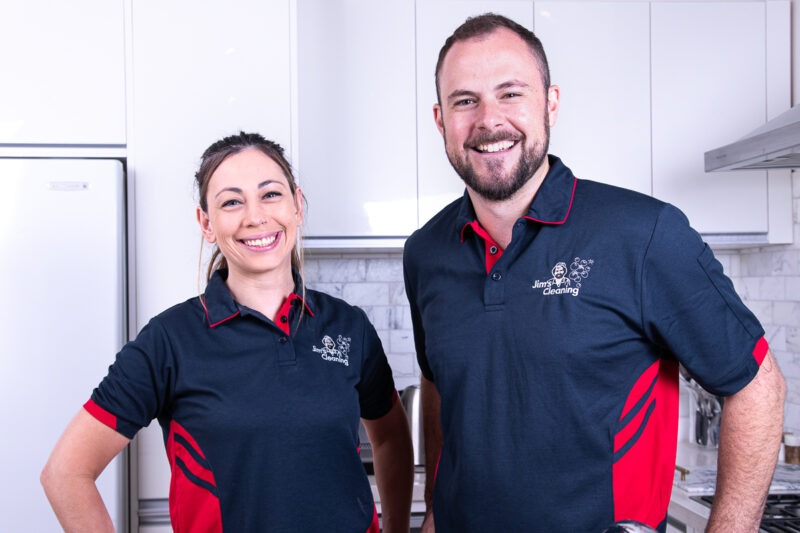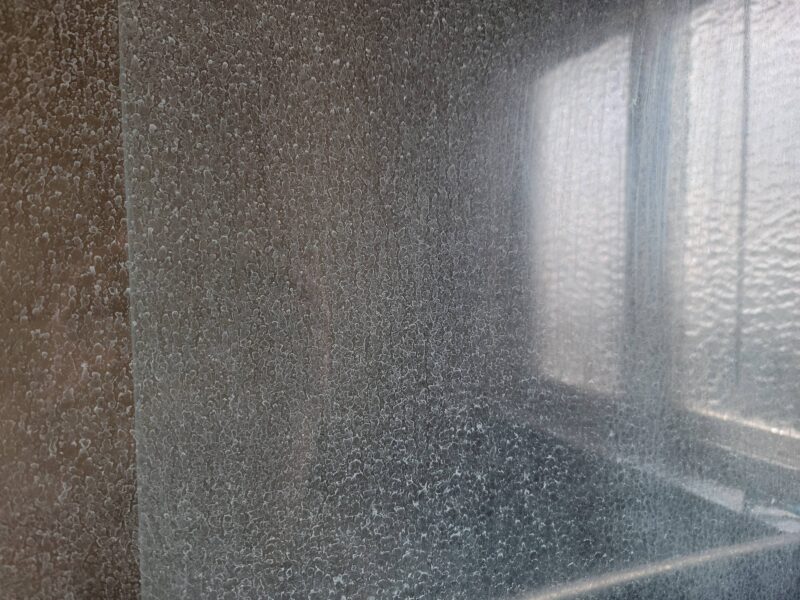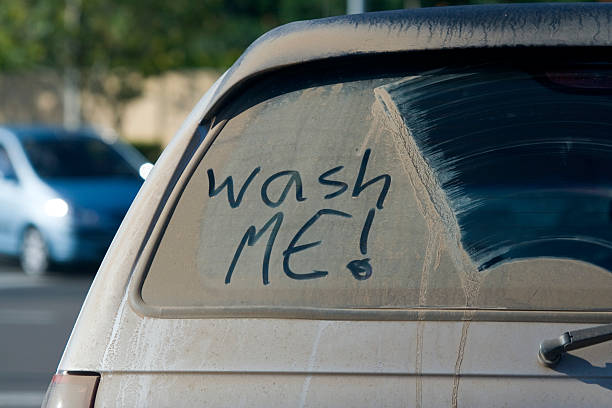Pressure washing can be an incredibly satisfying task, but that doesn’t mean it’s easy to do. If you’re interested in learning how to use a pressure washer, there are a few things you need to keep in mind to help prevent damage to your property and ensure the job is done well so you can enjoy all the benefits that pressure washing has to offer.
Here at Jim’s Cleaning, we’ve been providing pressure cleaning services to our clients for years, so we are well-versed in the dos and don’ts of pressure washing. We’ll walk you through the basics of what you need to know so you can feel more prepared for operating a pressure washer should the need ever arise.
What is a pressure washer used for?
A pressure washer is a special sprayer used to quickly remove material from outdoor areas and surfaces such as walkways and building exteriors by using highly pressurised streams of water. Pressure washers can be used in both residential and commercial settings. While almost anyone can operate a pressure washer, it is most effective when used by professionals who understand the safety requirements and best ways to operate it.
As to what to use a pressure washer for, the possibilities are almost endless. From graffiti removal and exterior house washing to brick, concrete and driveway cleaning, power washers are extremely versatile.
How do you use a pressure washer?
Both gas-powered and electric-powered pressure washers operate in roughly the same way. Each must be connected to a water source at one end and to a spray wand at the other end. Once the water has filled the pump, the pressure washer motor is switched on and the machine can be used to complete any pressure washing project.
Pressure washers often come with an adjustable nozzle or a variety of nozzle attachments. Each attachment offers a different degree angle that either widens or narrows the angle of the stream of water.
How to operate a pressure washer: The dos and don’ts
Do:
- Wear proper clothing, including close-toed shoes, pants, work gloves, goggles and ear protection.
- Begin washing at the lowest pressure to ensure you don’t damage the cleaning surface.
- Test your water pressure before beginning. You can do this by filling a 20-litre bucket – if it fills in under two minutes, your water flow is good.
- Clean your area before beginning a project. Remove all unsecured items and clear away loose grime and dirt.
- Test your nozzle and pressure on a discreet surface before beginning your project.
- Practise using your pressure washer in a safe space.
Don’t:
- Underestimate the power of the pressure washer — it is strong enough to cause lacerations, break windows and even damage concrete.
- Use the highest pressure and most concentrated nozzle for every job.
- Stand too close to your cleaning surface. Start several paces away and move closer if needed.
- Use hot water — in most instances, you won’t need it and you are more likely to damage a cleaning surface if you do use it.
- Point the sprayer at a person or animal or move your hands or arms in the path of the water.
FAQs
How do you use a pressure washer?
Begin by connecting the pressure washer to a hose and allowing water to fill the pump. Ensure that you have the proper nozzle attached. Then begin spraying the cleaning surface at a lower pressure and greater distance to ensure you don’t damage the surface. If needed, you may get closer to the surface to increase the pressure.
Work in a gentle side-to-side motion from the bottom up if you are using detergent, or the top down if you are not. Be sure not to linger too long in any area to avoid damaging the surface. Once your project is complete, flush, empty and store the pressure washer away for future use.
If you have more questions on how to operate a pressure washer, be sure to refer to the manual for more explicit instructions.
Do you turn the water on before you start a pressure washer?
Yes! It is important to run water through your pressure washer before using it to ensure that the pump is not overworked. Running your pressure washer without water may result in costly damage. It may also make it difficult to operate the pump.
What should you not do with a pressure washer?
If you’re wondering what to use a pressure washer for, it’s a versatile implement that can clean a whole array of surfaces from concrete driveways to exterior siding. However, pressure washers should not be used to clean delicate surfaces – such as glass – or to clean people or animals. It’s important to remember that pressure washers are much stronger than the average garden hose and can cause serious damage or injury if improperly used.
What happens if you spray yourself with a pressure washer?
Working with a pressure washer can be dangerous. Consider what a pressure washer is used for – it is intended to blast things like oil, dirt and mould and therefore operates at pressures that can cause serious bruising, lacerations and eye injuries to people.
Never point a pressure washer at yourself or others. Be sure to keep your hands and feet out of the spray when you’re operating a pressure washer. If you do become injured while using a pressure washer, seek medical help as soon as possible.
Is it okay to run a pressure washer without water?
It is possible to start a pressure washer without filling it with water, but we don’t recommend this. Running a pressure washer without water will quickly damage the pump and other components, resulting in costly damage to the machine.
What should you do before using a pressure washer?
Before using a pressure washer, there are a few things you should do:
- Read the manual for the pressure washer.
- Consider reading a guide that explains how to use a pressure washer.
- Consider your project and select the proper machine and nozzle.
- Prepare the area that you will be washing.
- Check the water source to ensure it provides adequate water flow.
- Turn on the water supply and remove any excess air from the system.
What’s the best nozzle to use on a pressure washer?
The nozzle that you use will depend on the type of job you are performing. Nozzles come in a variety of degrees, with zero, 15, 25 and 40 being the most common. A general rule of thumb is that the smaller the degree, the more powerful and concentrated the stream of water will be. Therefore, it is recommended that you use higher-degree nozzles for projects that require a lighter touch, while heavy-duty pressure washing should be done with lower-degree nozzles.
Does Jim’s Cleaning offer other cleaning services besides power washing?
Yes! Here at Jim’s Cleaning, we’re proud to provide a wide range of services to suit any need, from office cleaning to car detailing and so much more. Our professional team is well trained and highly experienced, ready to tackle any job you have for us. Even better, we proudly offer a Jim’s Work Guarantee, ensuring that you’ll always be happy with the end results.Reach out to our friendly team today to learn more about us or to get a free quote for your project.



